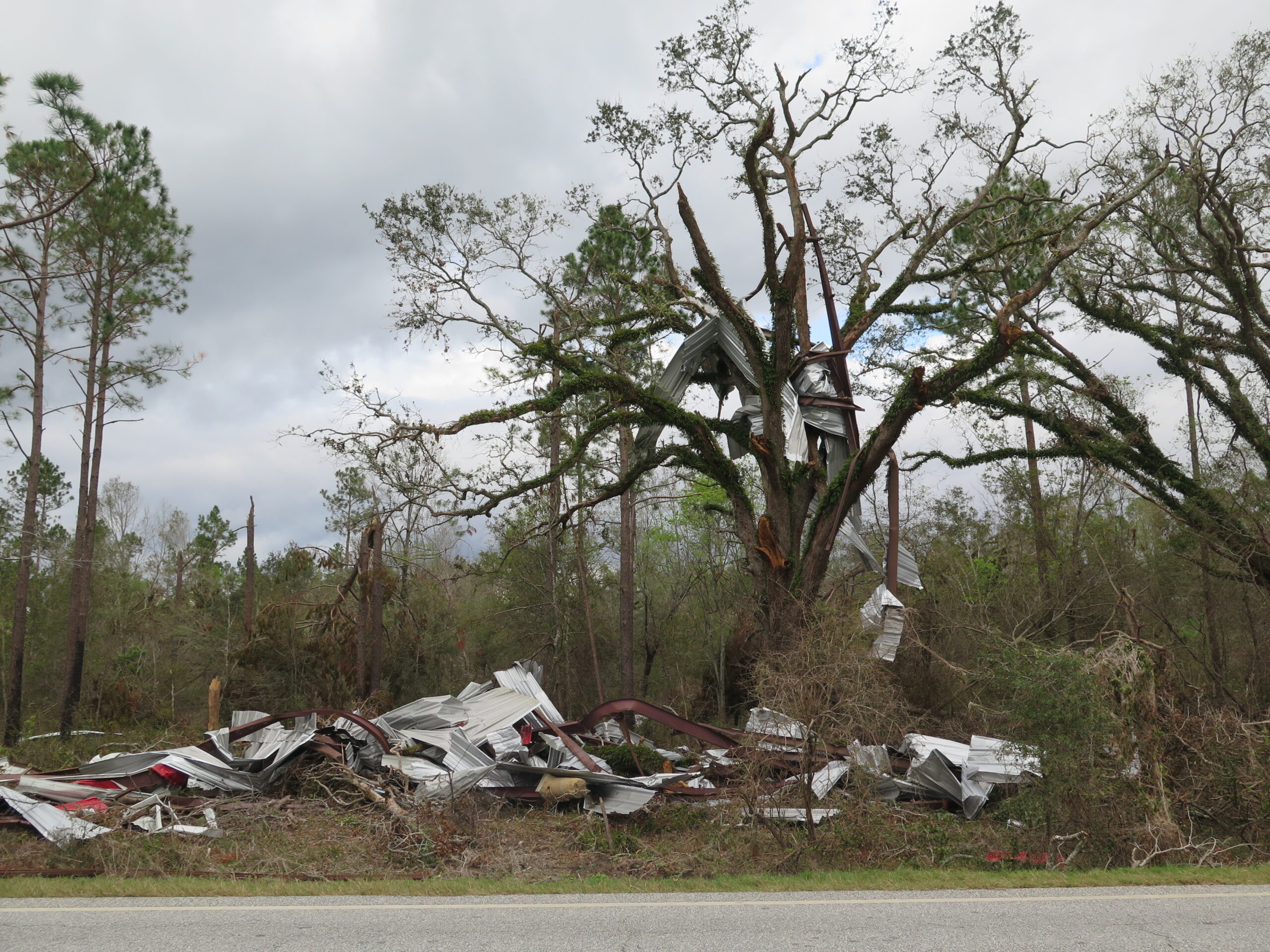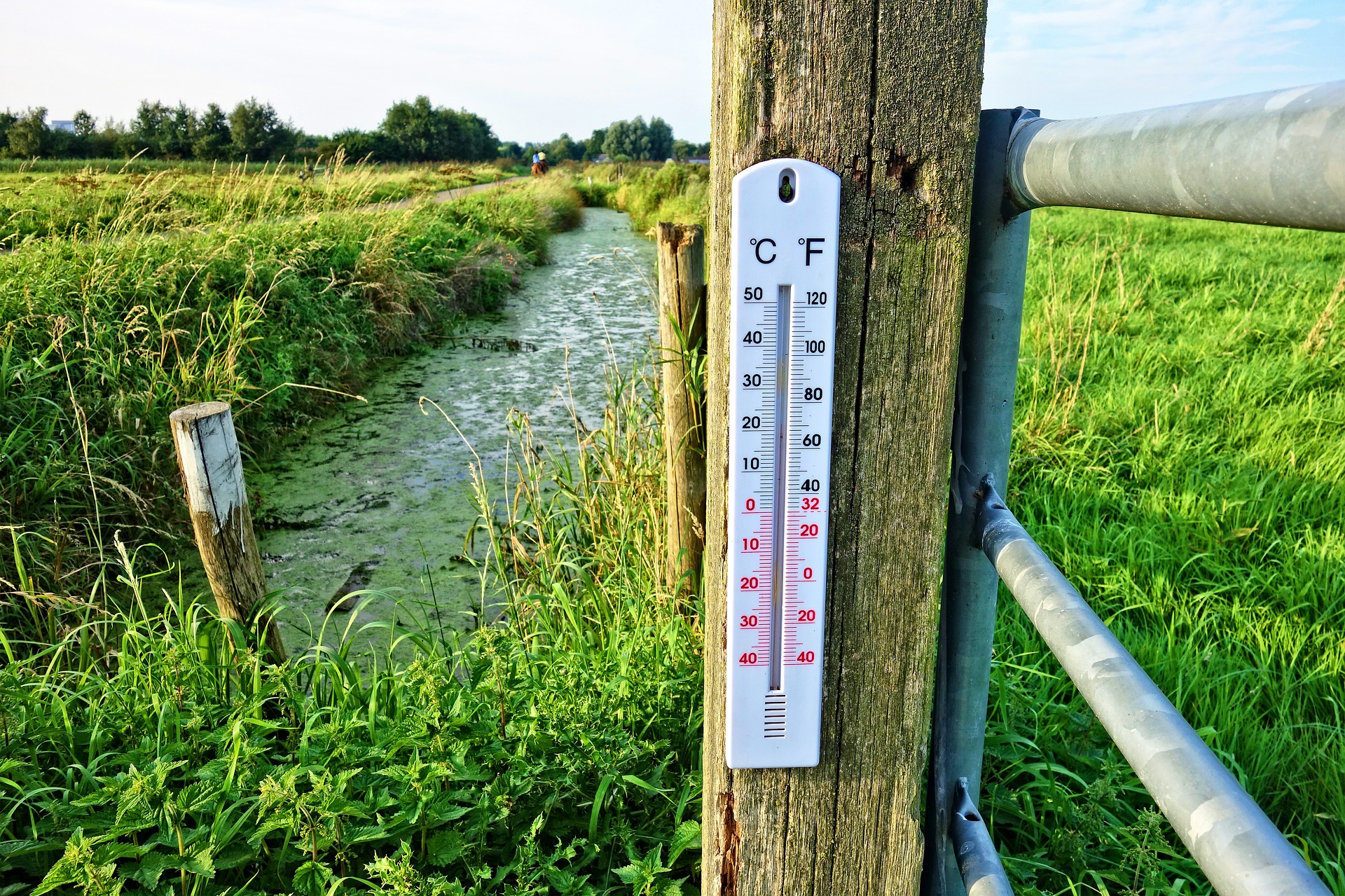Federal Hurricane Michael Relief Doesn’t Make It Into Senate Budget Resolution

Remnants of a barn blown into at tree in Seminole County, Georgia.
Emma Hurt / WABE
Updated at 5:04 p.m. Thursday.
There’s no funding for Hurricane Michael relief in the Senate’s short-term budget resolution passed Wednesday. Georgia farmers experienced about $2.5 billion worth of losses from the storm.
The House was still deciding on its own resolution Thursday –though President Trump has said he won’t sign anything without more border security funding.
But according to Georgia Agriculture Commissioner Gary Black, for Georgia farmers no matter what there is still hope in the new year.
With the threat of a government shutdown, the disaster relief supplement package for Hurricane Michael did not make it into the Senate’s bill, Black said.
“If it’s possible to be disappointed and encouraged in the same breath, I guess that’s where I am,” he said.
Disappointed, he said, because Georgians needed that money six weeks ago. Encouraged, he said, because there’s a lot of support for actually getting this done in the new year.
“Stall does not mean die, and that’s where I’m encouraged,” he said.
Georgia’s Members of Congress and the president know the funding is badly needed, he said. Plus, with former Georgia Governor Sonny Perdue as Agriculture Secretary, he explained, there are a lot of “well placed” advocates for the cause in Washington.
Sen. David Perdue expressed his disappointment about the turn of events on the Senate floor Wednesday.
“This continuing resolution kicks the can down the road…This devastates farmers and small-town bankers who are trying to fund next year’s crop because they have no way of paying this year’s,” he said.
Black also made the point that this is about more than just the farmers. It’s an entire economy in Southwest Georgia.
“We’re talking about yes, the farm families of Georgia, front and center, but you’re also talking about the heart and soul of rural Georgia: community banks and even larger banks like Wells Fargo and others. The health of the financial institutions is at stake,” he said. “Those institutions need certainty. They need to know what they’re going to do in 2019.”
Without a crop to pay off their operating loans from last year, many farmers have no way to fund 2019’s crop. And many of the banks that loan them the money are left hanging.
Not getting it done in the new year, Black said, is “not an option.” No word yet on exactly how much it could be. However, he is optimistic there could be “a much better package in January than we could have gotten [this week],” without the other distractions.
“We look forward to going back in January and hopefully, perhaps a bit tardy, but if it meets our needs and we can come together in quick fashion then it should get us positioned for 2019.”
Georgia has seen at least $2.5 billion in agriculture losses from the hurricane. The Georgia General Assembly passed a $470 million package to help Georgia farmers and banks in a special session last month.







